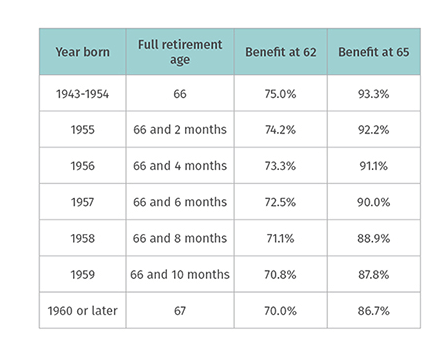By Jeff Gilbert
Retirement is a milestone unlike any other, but rather than eagerly anticipating these golden years, almost half of all Americans worry about running out of money in retirement. (1) Are you one of them? Even if you’re not, you likely feel the need to be fiscally responsible in retirement in order to avoid problems down the road.
As the foundation of personal financial management, a budget is essential if you want to stay on top of your finances in retirement. Here are three budgeting tips to help boost your confidence and peace of mind as you enter and enjoy retirement.
1. Identify Flexible Spending Categories
As you build your budget, organize it based on needs. Every single expense should be identified as either fixed or variable and essential or non-essential. For example, your housing expenses are likely fixed and essential. Food is essential, but it is a variable expense. A gym or country club membership may be fixed, but it is non-essential. Other forms of leisure or travel are likely variable and non-essential.
Knowing which expenses are necessary and which are flexible can give you incredible peace of mind. If you’re used to spending $8,000 a month, once you sort your expenses and discover that only $4,500 of them are truly necessary, it relieves a lot of pressure.
It also allows you to make wiser financial decisions and adjust better to market conditions. If we enter a bear market and your portfolio is down, you can cut spending back to cover the necessary expenses you identified. Maybe you put off that big trip or eat out less. This can potentially keep more of your money invested so you can be better positioned if and when the market bounces back.
2. Plan For Taxes
Unless all of your money is in an after-tax account or Roth IRA, you will have to deal with taxes in retirement. Having your mortgage paid off before retirement is a common—and excellent—goal. However, don’t make the false assumption that no mortgage equals no payments.
Part of your monthly mortgage payment may be going toward property taxes and homeowners insurance if you escrow. Don’t forget that you still have to pay these bills when your home is fully paid off, and it’s important that these figures be included in your budget. Keep in mind, these numbers will be inflating over time as well. One way to handle property taxes and homeowners insurance in retirement is to set aside money on a monthly basis, just like you did with your mortgage, so that you have the funds when those bills are due.
Property taxes won’t be the only taxes you will owe in retirement. Distributions from 401(k)s and IRA accounts will most likely be considered taxable income. Even your Social Security benefits may be taxable, depending on your overall income. It’s critical that you are withholding and paying the proper taxes so that you don’t get into a large tax bill situation. A competent tax preparer can help you with this.
3. Work With A Professional
Tax preparers aren’t the only financial professionals you’ll want to work with in retirement. A competent financial planner can make the difference between a retirement marked by fear and stress (like the 49% of Americans mentioned previously) and one of confidence.
The closer you get to retirement, the more you’ll find investment advisors who want to work with you and manage your money for you. Yes, it’s wise to have a professional help you with your investments, but that isn’t enough. You need a financial professional who will not only manage your money but help you manage your entire financial life as well.
We at Balboa Wealth Partners will help you develop a comprehensive financial plan that includes your short-term and long-term goals, a sustainable budget, and a general road map to help you navigate retirement. To learn more about what it’s like to work with a professional who cares more about your life than your investments, contact us at 949-445-1465 or [email protected] to set up a no-obligation conversation.
About Jeff
Jeff Gilbert is the founder and CEO of Balboa Wealth Partners, a holistic financial management firm dedicated to providing clients guidance today for tomorrow’s success. With nearly three decades of industry experience, he has worked as both an advisor and executive-level manager, partnering with and serving a diverse range of clients. Specializing in serving high- and ultra-high-net-worth families, Jeff aims to help clients achieve their short-term and long-term goals, worry less about their finances, and focus more on their life’s passions. Based in Orange County, Jeff works with clients throughout Southern California as well as Arizona, Oregon, and Washington. To learn more, connect with Jeff on LinkedIn or email [email protected].
Advisory services provided by Balboa Wealth Partners, Inc., an Investment Advisor registered with the SEC. Advisory services are only offered to clients or prospective clients where Balboa Wealth Partners and its Investment Advisor Representatives are properly licensed or exempt from registration.
Securities offered through Chalice Capital Partners, LLC, member FINRA, SIPC.
Balboa offers advisory services independent of Chalice. Neither firm is affiliated.
___________
(1) https://www.aarp.org/retirement/planning-for-retirement/info-2019/retirees-fear-losing-money.html


